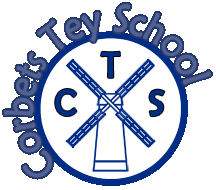The Forest Pathway
Students:
Have severe learning difficulties
Have difficulties with sensory processing and perceived sensory patterns
Have difficulties with memory, generalising and problem solving
Have difficulties with concentration and attention
Have a functional communication method to support communication and interaction needs
Have a need for structure and routine
Some work within former P4 – P8 range
Some work towards Pre Key Stage Standards
Some are working towards and within primary national curriculum expectations
Some within Key Stage 4 and 5 are working towards Entry Levels 1-3
Some have specific learning difficulties
May have a range of needs including physical and medical, communication, social, emotional, mental health and or specific learning difficulties
Need support with some aspects of self-care (including feeding, dressing and intimate care
Provision:
Students access a structured classroom routine which may include an appropriate level of multi-sensory approach to learning.
A range of approaches are utilised, with small group teaching being the main route to learning. Students are introduced to the wider curriculum subjects in a stage appropriate manner and these subjects are developed to match the needs of students in the group.
Some students can access a national curriculum offer, which is modified according to the range of needs within the class.
The curriculum is as functional as possible to enable as much independence as possible and access the community fully.
Students benefit from a curriculum which focuses around repetition of skills and over learning is essential for developing fluency.
Students are taught according to their ability and where appropriate grouped for certain subjects.
Students in this pathway will have access to:
Staff ratio matched to student need to develop and encourage independent access to curriculum
Access to a range of indoor and outdoor learning environments such as Sensory Garden, Sand and Water areas etc. both on and off site
Access to facilities to develop self-help and personal care skills
1:1 support where required for specific aspects of their education for example allocated signer
Visual supports in regards to their literacy development
Augmentative and alternative communication (AAC device)
Sign supported English for specific learners
Adaptive physical aids e.g. chairs/tables
Access to technology to aid and support their literacy
Opportunities for Philosophy for Children (P4C) class discussion and debate regarding current affairs and moral values
Opportunities for Enterprise and Work Experience (Key Stage 4/5) and Enterprise (Careers)
Access to breakout areas to support self-regulation
A multi-sensory approach where required
Visual supports (timetables, key rings)
Sensory diets and sensory integration programs
Sensory and Social stories
Learning intentions for students within this pathway are taken from:
EHCP outcomes (Long term and annual)
Pre Key Stage Standards (working towards accessing the National Curriculum)
Learning Pathway (up to and including Year 6 learners)
Pathway to Adulthood (from Year 7 and up to and including Year 14 learners)
National curriculum (Rising Stars)
School Communication Interventions
Speech and Language Therapy(SALT) Programmes
Physiotherapy/Occupational Therapy Programmes
Student progress is assessed through:
Learning intentions taken from suggested frameworks above
Evidence for Learning (Assessment Periods)
Communication data (where appropriate)
Rising Stars documents
ASDAN Entry Level 1-3 (Key Stage 4/5 students)
ABC data (where appropriate)
Phonics screening if applicable (Year 2 Statutory assessment
Engagement Model (Year 1 to Year 11 learners where appropriate)
Students are supported to develop key life skills, including toilet training, feeding skills, dressing and personal hygiene.
Students may (but not always) move into the formal curriculum during their time at CTS




